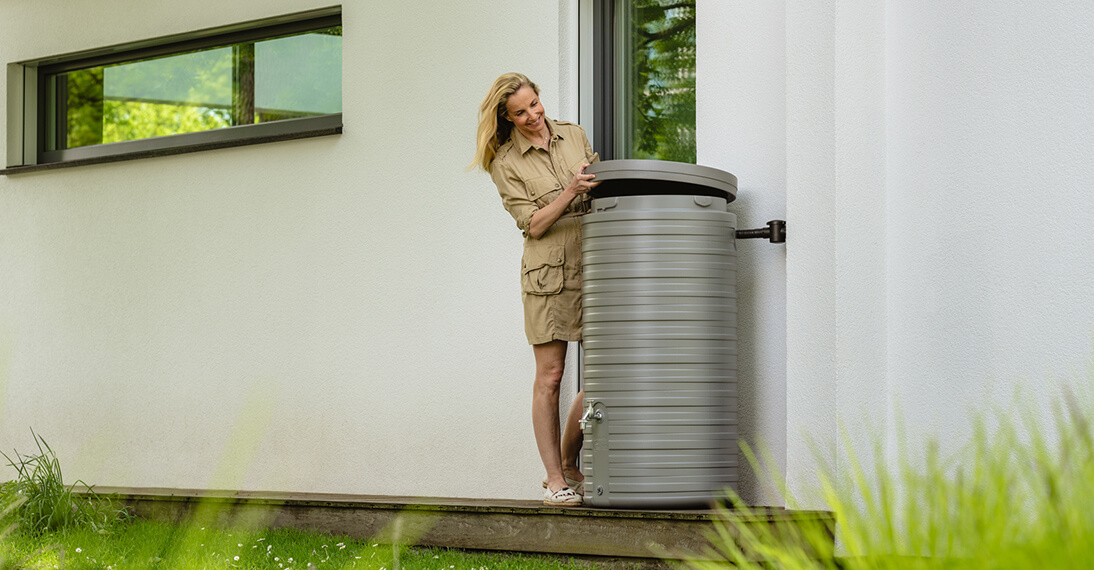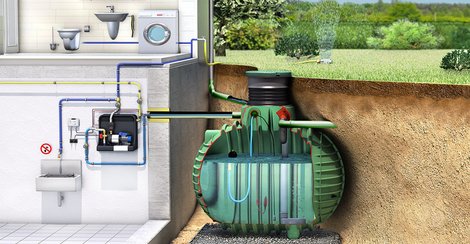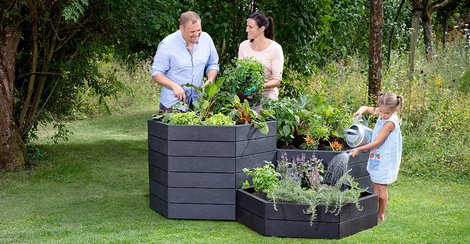Climate garden - For the Garden of Tomorrow
Six simple tips for a climate-friendly garden! Have you ever wondered how you can make your garden fit for the future? After all, climate change is not only bringing about changes globally but also in our gardens at home. You can make your garden more climate-friendly with these six tips.
1. Prepare the Soil for Rain
Have you ever thought about unsealing your garden soil? Unsealed soils store and filter rainwater, regulating the water balance. Rainwater can seep away better and slowly reach the groundwater. Unsealed soils are also better protected against flooding or heavy rainfall. At the same time, the evaporative cooling of the moist soil ensures more pleasant temperatures. Gravel and gravel paths can be partially sealed and do not offer these advantages - one more reason to bring more greenery into the garden!
2. Plants to Provide Shade
Trees and climbing plants not only provide shade for us but also for our houses and walls. This is because they heat up when there is a lot of sun and release the heat well into the night. By the way, gravel gardens have exactly the same effect! Plants can help by providing shade and cooler temperatures, acting as a natural air conditioning system for the garden.
3. Watering with Rainwater
On hot summer days, plants and trees in the garden need to be watered. The best way to do this is to use water that nature makes available to us free of charge and can be easily collected in barrels or cisterns: Rainwater. The best thing about it is that many plants tolerate soft rainwater better than hard drinking water. However, the following generally applies to watering, especially in dry months: it is ideal to water plants less frequently but more thoroughly - preferably early in the morning or late in the evening so that the water does not evaporate immediately.

4. Miracle Weapon Biochar
Biochar is a real all-rounder: it can store up to five times its own weight in water and improves soil fertility. This allows plants to grow better and produce higher yields. Biochar is also a peat-free water reservoir that keeps the soil moist for a long time. What also makes biochar special is its ability to permanently store CO2 in the soil and actively extract it from the atmosphere - an important element in the fight against climate change and for our environment.
5. Cover Soils
Covered soil stays moist for longer! It can therefore be worth spreading mulch or grass clippings over the soil to prevent evaporation and thus maintain soil moisture during dry periods and protect it from heat and cold. It is estimated that a third less water evaporates from a covered soil compared to an uncovered one - so it can really pay off.
6. Drought-Resistant Plants
Choose plants that tolerate sun and drought well and require less water. Ideal drought-resistant plants for stress-free periods of heat include mountain mint, widow flowers, stonecrops, cat's paws, gypsophila, lavender, yarrow and Spanish daisies.



